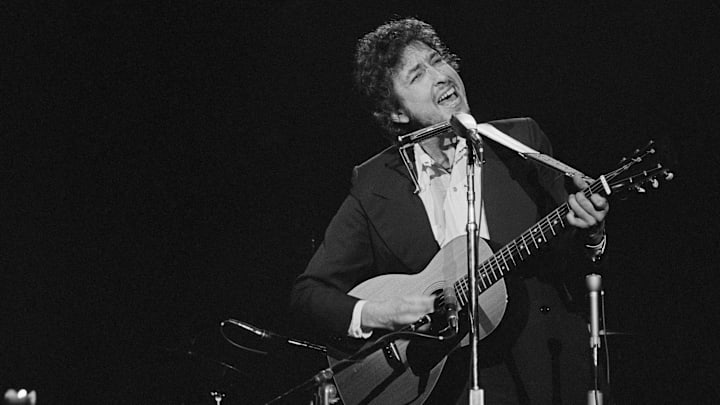Simple Twist of Fate” by Bob Dylan (1975)
Speaking of breakups… Dylan was still a huge name in the mid-‘70s, but some were openly wondering if he would ever get back to the gaudy highs of the mid-‘60s. He had put out several marginal albums to kick off the new decade. 1974’s Planet Waves signaled a bit of a return to form, but it still didn’t have that old magic.
That all changed in 1975. Blood on the Tracks stands alongside his very best and therefore is among the very best albums ever recorded. The impetus? A breakup. His marriage to Sara Lowndes (for whom he had written the iconic “Sad-Eyed Lady of the Lowlands”) was dissolving. The wistfulness of dying love is rendered in heartbreaking detail throughout Blood on the Tracks. The simple melodic line of “Simple Twist of Fate” does it better than virtually any song I know. “She was born in the spring, but I was born too late – Blame it on a simple twist of fate.”
“Diamonds and Rust” by Joan Baez (1975)
While we’re on the subject of breakups involving Bob Dylan, let’s check in with arguably the most important female folk artist of the era. (OK – time would eventually knock her down to second most important behind Joni Mitchell.) Joan Baez was enormous for a while. She had a romantic relationship with Dylan. It ended. And a while later, she recapped the entire affair in “Diamonds and Rust.”
It's a haunting melody that showcases the inherent drama in Baez’s gorgeous voice. A simple guitar carries the melody while strings swirl all about, creating a hazy flashback. But it is that voice that sells the message. She can pull off a lyric like “As I remember your eyes were bluer than robin’s eggs – My poetry was lousy you said” and make it sound more clear-eyed than bitter. We are a long way from the environmental protest songs that kicked off the decade. Folk had developed its own ecosystem. It was now commenting on itself. No one did it better than Joan Baez in “Diamonds and Rust.”
